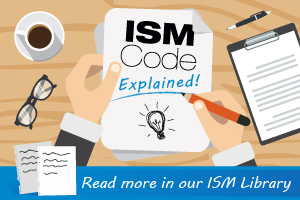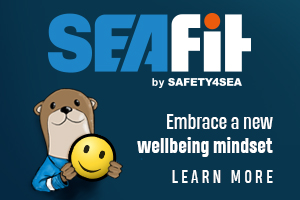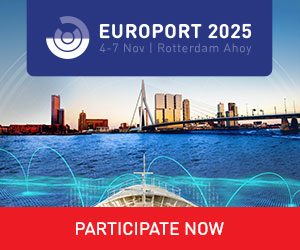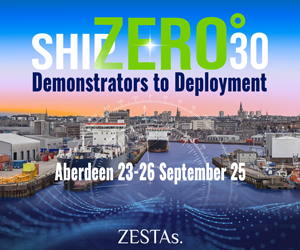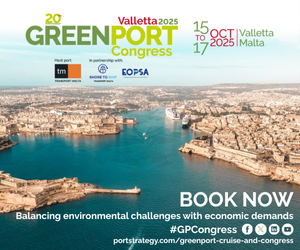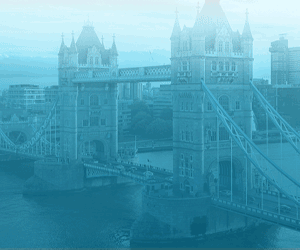Shortlisted nominees announced for the SAFETY4SEA-EUROPORT Awards
This year, Europort, one of the world’s premier maritime exhibitions, joins forces once again with SAFETY4SEA to celebrate industry excellence through a prestigious awards series.
Read moreDetailsLife Onboard
SEAFiT
IMO Sec-Gen: No one should feel alone in their struggle
On 25 June, the global maritime community comes together to celebrate the Day of the Seafarer. This year's campaign, 'My Harassment-Free Ship', is a bold initiative aiming to promote a culture of respect and zero tolerance for bullying and harassment at sea.
Book Review: Feel grounded and think positive in 10 simple steps
Admiral William H. McRaven’s "Make Your Bed" is a powerful book, drawing lessons learned from the author’s own military experiences and turning it into practical guidance for anyone facing personal or professional challenges.
8 Key rules of Public Speaking
Public speaking is the act of delivering a message or speech to a live audience, usually larger than a typical conversation group.
Mindfulness and social media: M.I.N.D. your media
Practicing mindfulness on social media can help reduce its negative effects. The M.I.N.D. framework, introduced by Brit Heiring, can serve as a practical guide for more intentional digital engagement.
Interviews
Regulatory Update
IMO targets fatigue, work and rest hours and harassment at sea
The International Maritime Organization (IMO) has renewed its focus on seafarer issues such as work and rest hours, fatigue and violence and harassment.
Key measures for discharge compliance in China’s Coastal Waters
Huatai Marine has issued a circular providing an overview of the updated compliance guidelines and discharge control requirements for water pollutants from ships operating in Chinese coastal waters, offering practical guidance.
Finnish ban on cargo wastewater dumping takes effect
Starting 1 July 2025, cargo ships are banned from discharging toilet wastewater, sulphuric wash water and scrubber sludge into Finnish coastal waters.
IMO MSC 110: Key outcomes
The Maritime Safety Committee met for its 110th session (MSC 110) 18-27 June, 2025, where key decisions that shape maritime safety were made.
IMO agrees to revision of regulations for nuclear-powered ships
The International Maritime Organization (IMO) has formally agreed to start the revision of outdated regulations for nuclear-powered ships.
OSPAR bans scrubber discharges in North-East Atlantic waters
At an OSPAR meeting held in Brussels on 26 June, environmental ministers from the EU and 15 European countries agreed to introduce the first regional regulation on scrubber discharges.
In the current
In the current
IN THE CURRENT
Voyaging to perfection: The ongoing evolution of NavStation
Timo Essers, e-Navigation Director at NAVTOR, explains the philosophy driving the continual evolution of NavStation, while outlining the headline updates to the soon-to-be released NavStation 6.4.
Read moreDetailsInnovating ocean safety: Intellian’s unified vision for connectivity and GMDSS
In the intricate world of maritime operations, safety is paramount. It’s a commitment woven into every journey, from critical cargo transports to the leisure of cruise liners, argues Jon Harrison, Vice President of Channel & Strategic Partnerships, Intellian.
Read moreDetails
Maripedia
Do you know what dynamic separation is?
NorthStandard P&I Club has published a guide on "Bulk Cargo Liquefaction and Dynamic Separation", exploring the phenomenon and presenting best practices to mitigate its impact.
Do you know your lifeboat?
The American P&I Club has issued a guidance that highlights the importance of indepth training, robust familiarity with the specific lifeboat onboard, and rigorous maintenance routines to ensure the safety and reliability of lifeboats.
Watch
Shipping 2030
Consortium advances floating nuclear power for the Mediterranean
In an effort to support the development of floating nuclear power plants (FNPPs), ABS, CORE POWER and Athlos Energy have formed a consortium to evaluate the potential of positioning the platforms to meet the energy demands of islands, ports and coastal communities in the Mediterranean Sea.
AkzoNobel: Quality antifouling coatings can help with CII and EEXI compliance
As the maritime industry navigates the growing regulatory demands to reduce emissions and improve energy efficiency, ship operators are increasingly looking for practical solutions to comply with the IMO’s requirements. According to AkzoNobel, one effective and accessible approach is the application of high-quality antifouling coatings.
CSA urges OSPAR to improve understanding before enacting scrubber ban
The recent decision by OSPAR to restrict the use of scrubbers in the North Atlantic ports and inland waters of the contracting parties of OSPAR, projected to start in 2027, has been called into question by the Clean Shipping Alliance (CSA).
GMS: Hong Kong Convention highlights need for upgrades
According to GMS' latest report, the Hong Kong Convention (HKC) finally entered into force on 26 June with big changes underway for the industry, particularly in the Bangladeshi and Pakistani markets who still have a lot of work to do and catch up to the strides India has already made in upgrading their facilities over the last decade.
DNV: Vessel orders show shipping is actively recalibrating
DNV data reveals that ordering of alternative-fuelled vessels is continuing to grow in 2025, despite a slowdown in the overall newbuild market.













































